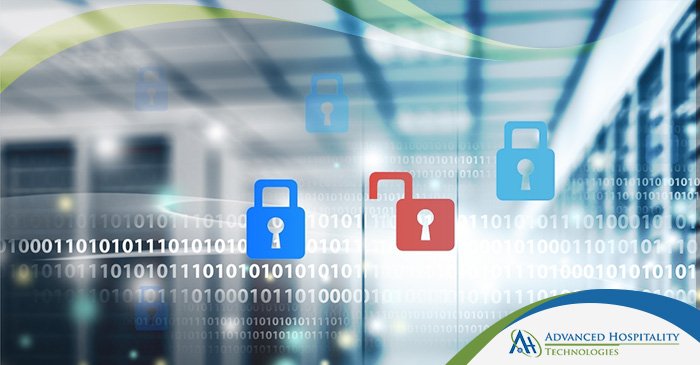Introduction
The hospitality industry is on the brink of a technological revolution. At the forefront of this change is 5G connectivity. This next-generation wireless technology promises to transform how hotels operate and serve their guests. With its lightning-fast speeds and low latency, 5G is set to redefine the concept of high-speed internet in the hospitality sector.
5G connectivity isn’t just about faster internet. It’s about creating seamless, personalized experiences for guests and streamlining operations for staff. From smart rooms to augmented reality tours, 5G is opening up a world of possibilities. This blog explores how 5G is reshaping the hospitality landscape and why it’s crucial for industry professionals to embrace this technology.
Enhanced Guest Experience
5G connectivity is set to elevate the guest experience to unprecedented levels. With speeds up to 100 times faster than 4G, 5G enables hotels to offer truly high-speed internet to their guests. This means no more buffering videos, lagging video calls, or slow downloads.
But the benefits of 5G go beyond just faster browsing. It allows for more devices to connect simultaneously without compromising speed. This is crucial in a hotel setting where hundreds of guests might be online at the same time. Whether it’s streaming 4K content, participating in virtual meetings, or gaming online, guests can enjoy seamless connectivity throughout their stay.
Moreover, 5G’s low latency opens up possibilities for real-time interactions. Hotels can offer instant customer service through high-quality video chats or provide virtual concierge services. This level of responsiveness and personalization can significantly enhance guest satisfaction and loyalty.
Smart Rooms and IoT Integration
5G connectivity is the key to unlocking the full potential of smart rooms and Internet of Things (IoT) devices. With 5G, hotels can create fully connected environments where everything from lighting and temperature to entertainment systems can be controlled seamlessly.
Imagine a guest walking into their room, and the temperature automatically adjusts to their preference. The TV turns on with a personalized welcome message, and the curtains open to reveal the view. All this is possible with 5G-enabled IoT devices communicating in real-time.
Furthermore, 5G’s high-speed internet capabilities allow for more sophisticated in-room entertainment systems. Guests can enjoy virtual reality experiences, play cloud-based games, or stream high-quality content without any lag. This level of customization and interactivity can significantly enhance the guest experience and set hotels apart from their competitors.
Operational Efficiency
5G connectivity isn’t just about enhancing guest experiences; it’s also about improving operational efficiency. With 5G, hotels can implement advanced systems for inventory management, security, and staff communication.
High-speed internet enabled by 5G allows for real-time data processing and analysis. This means hotels can monitor occupancy rates, energy consumption, and staff performance in real-time. Such insights can lead to more efficient resource allocation and cost savings.
Additionally, 5G can power advanced security systems with high-resolution cameras and real-time facial recognition. This not only enhances guest safety but also streamlines check-in processes. Staff can also benefit from 5G connectivity through improved communication systems and access to real-time information, leading to faster response times and better service delivery.
AR/VR Experiences
Augmented Reality (AR) and Virtual Reality (VR) are set to revolutionize the hospitality industry, and 5G connectivity is the enabler. With its high-speed internet and low latency, 5G can support seamless AR and VR experiences that were previously impossible.
Hotels can offer virtual tours of their facilities, allowing potential guests to explore rooms and amenities before booking. During their stay, guests can use AR-enabled devices to navigate the hotel, access information about local attractions, or even visualize menu items before ordering.
VR can take guest experiences to another level. Hotels can offer virtual travel experiences, allowing guests to ‘visit’ famous landmarks or attend events from the comfort of their rooms. These immersive experiences, powered by 5G’s high-speed connectivity, can create memorable stays and set hotels apart in a competitive market.
Reliable Connectivity for Business Travelers
For business travelers, reliable high-speed internet is not just a luxury; it’s a necessity. 5G connectivity ensures that these guests can work efficiently from their hotel rooms or conference facilities.
With 5G, video conferences can be conducted in high definition without any lag or interruptions. Large files can be uploaded or downloaded in seconds. Cloud-based applications run smoothly, allowing business travelers to work as if they were in their own offices.
Moreover, 5G’s ability to support a large number of connected devices means that even during large conferences or events, every attendee can enjoy stable, high-speed internet. This reliable connectivity can make hotels more attractive venues for business events and conferences.
Conclusion
5G connectivity is set to revolutionize the hospitality industry. From enhancing guest experiences to improving operational efficiency, the impact of this technology will be far-reaching. As we’ve explored, 5G’s high-speed internet capabilities will enable smart rooms, IoT integration, AR/VR experiences, and reliable connectivity for business travelers.
For hospitality professionals, embracing 5G is not just about staying current; it’s about future-proofing their businesses. Those who leverage this technology early will be well-positioned to meet evolving guest expectations and stay ahead in an increasingly competitive market. As 5G networks continue to expand, the possibilities for innovation in the hospitality sector are boundless. The future of hospitality is connected, personalized, and immersive – and 5G is the key to unlocking this exciting new era.



